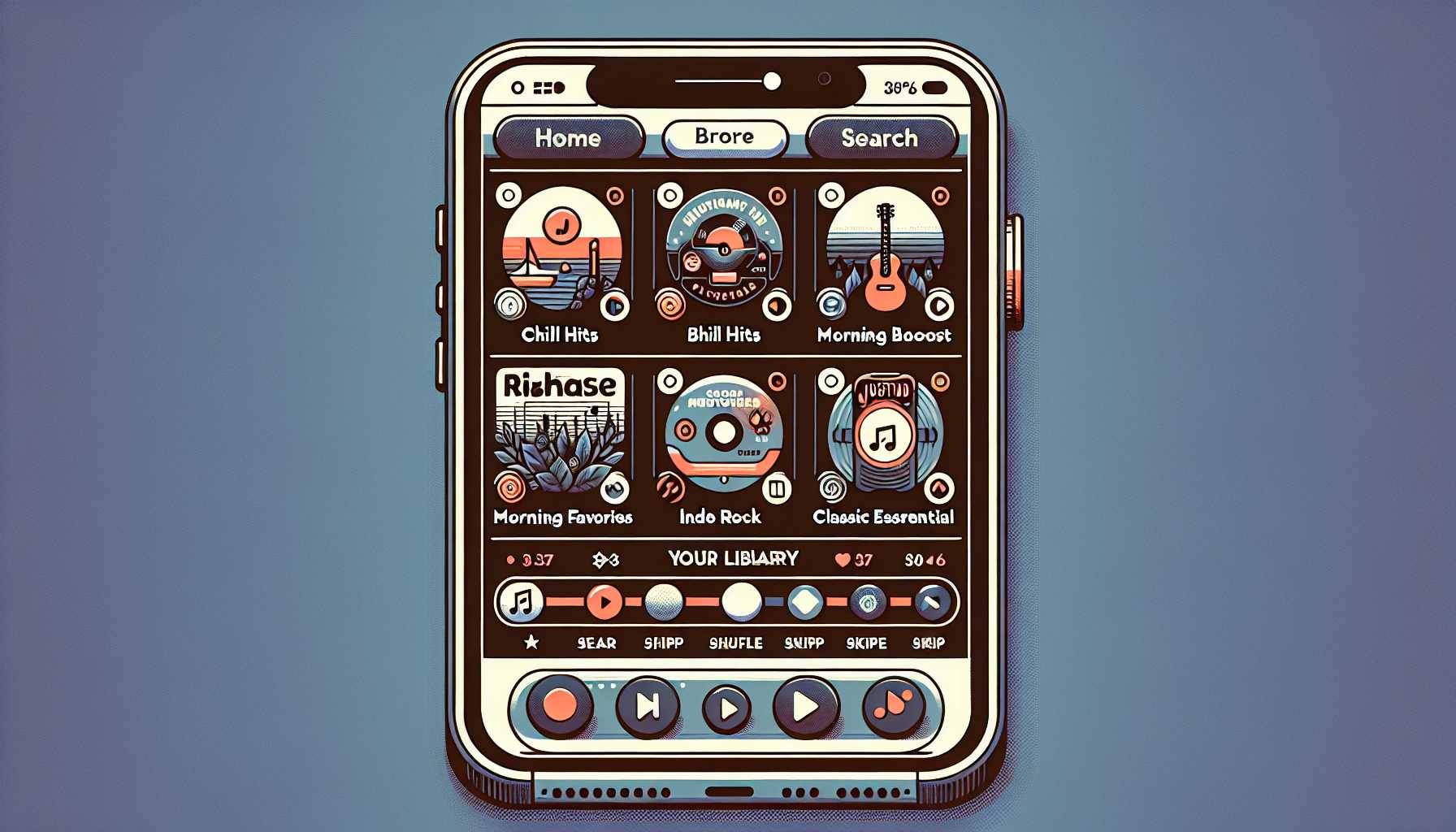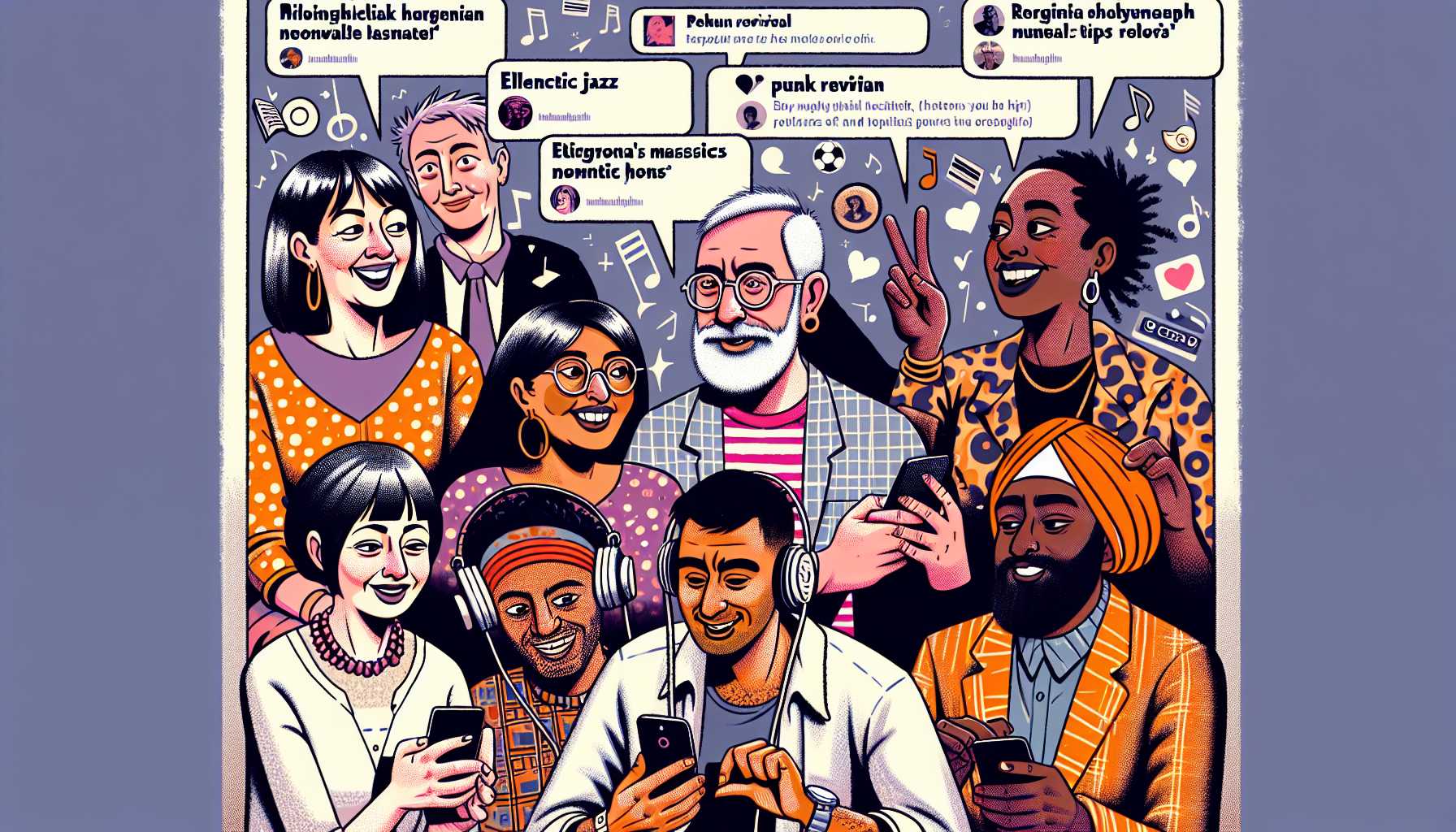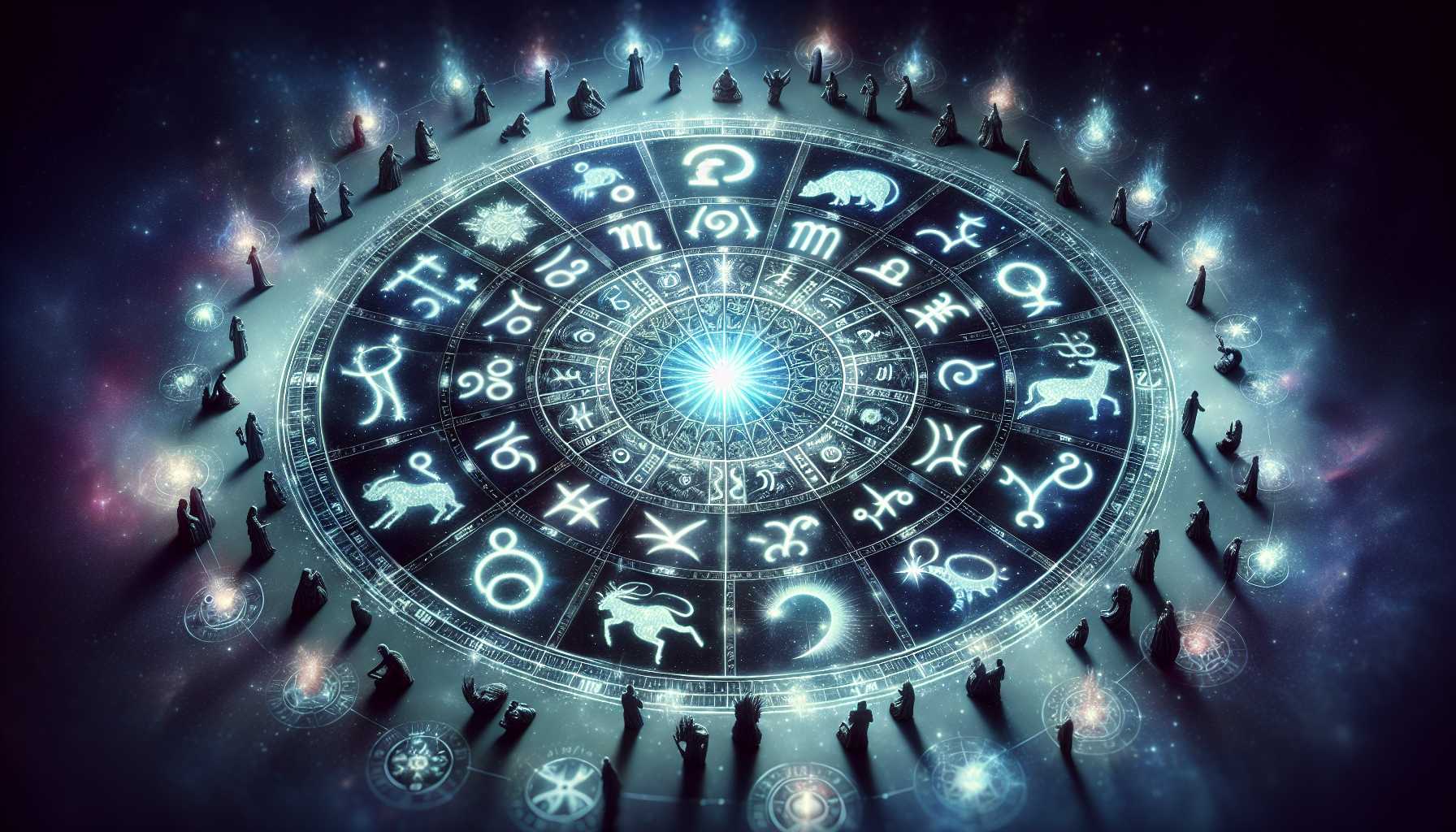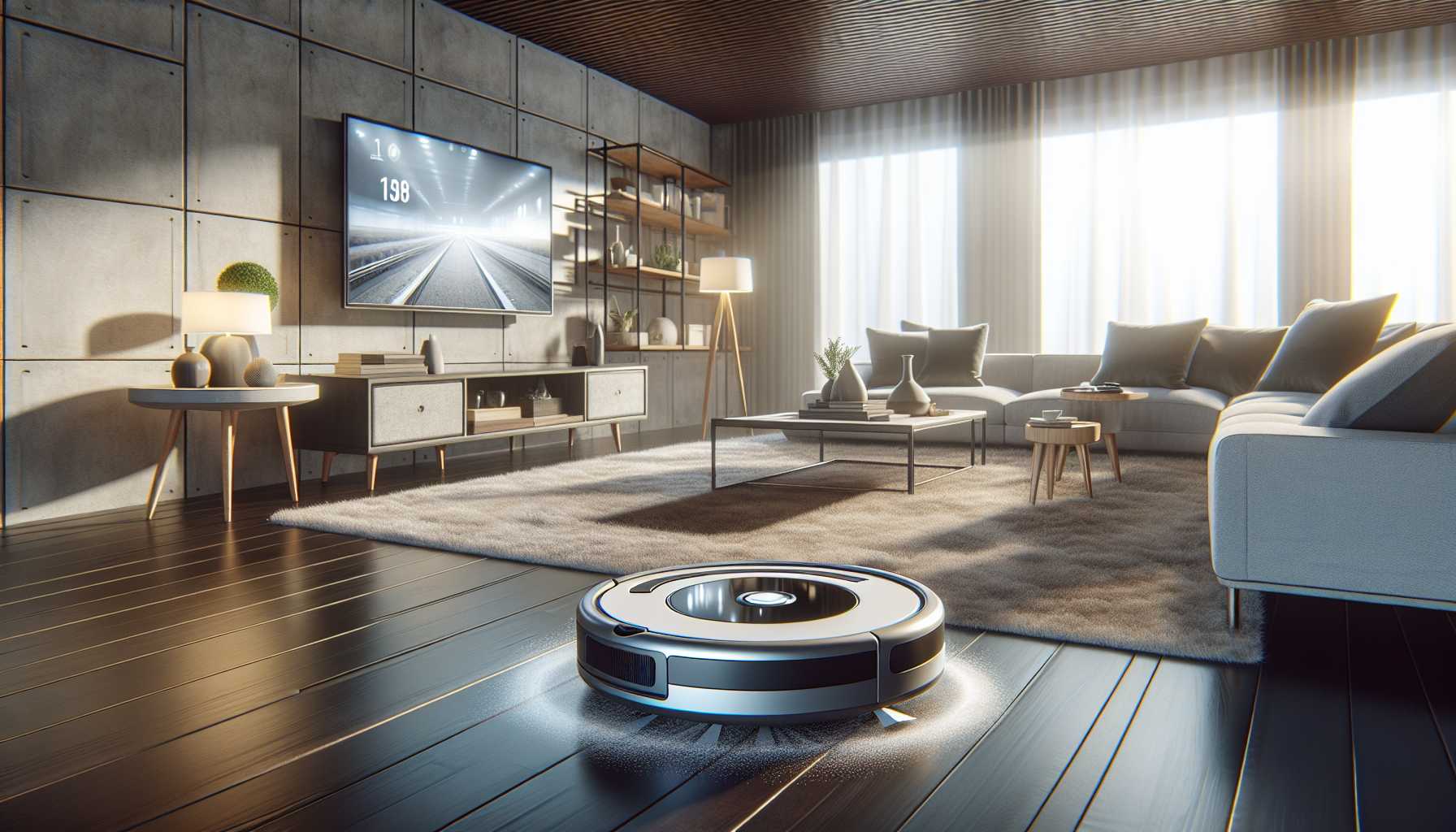 In the ever-evolving world of streaming, Spotify’s Daylists have captured the internet’s collective attention with their enigmatic charm and scarily accurate musical reflections of our daily moods. But what’s truly fascinating is the resounding question it poses: Are these algorithmically generated playlists the modern incarnation of astrology for the digital age?
In the ever-evolving world of streaming, Spotify’s Daylists have captured the internet’s collective attention with their enigmatic charm and scarily accurate musical reflections of our daily moods. But what’s truly fascinating is the resounding question it poses: Are these algorithmically generated playlists the modern incarnation of astrology for the digital age?
The Buzz Around Spotify’s Daylist
 As a tech investor and enthusiast who’s always plugged into the latest digital waves, I’m intrigued by the recent surge in popularity of Spotify’s Daylist feature. A seemingly simple algorithmic blend has skyrocketed search queries by a whopping 20,000%, thanks to a viral social media prompt: Don’t tell me your astrology sign, tell me your Daylist name. The compelling magnetism of these playlists and their quirky names like “fearful vocaloid wednesday morning” or “heartbroken karaoke friday evening,” converge at the intersection of cultural zeitgeist and tech innovation. They mirror not just one’s musical taste but an emotional state, creating a personal soundtrack that’s in flux, just as we are.
As a tech investor and enthusiast who’s always plugged into the latest digital waves, I’m intrigued by the recent surge in popularity of Spotify’s Daylist feature. A seemingly simple algorithmic blend has skyrocketed search queries by a whopping 20,000%, thanks to a viral social media prompt: Don’t tell me your astrology sign, tell me your Daylist name. The compelling magnetism of these playlists and their quirky names like “fearful vocaloid wednesday morning” or “heartbroken karaoke friday evening,” converge at the intersection of cultural zeitgeist and tech innovation. They mirror not just one’s musical taste but an emotional state, creating a personal soundtrack that’s in flux, just as we are.
Gen Z, Millennials, and the Astrology Boon
 The allure of Daylists seems to echo the wave of astrology’s resurgence among Gen Z and millennials. A report by Allied Market Research valued the astrology sector at $12.8 billion in 2021, predicting a rise to $22.8 billion by 2031. It’s noteworthy that the precipice of astrology’s newfound stardom aligns with declining religious affiliations among younger generations, suggesting that celestial insight might be filling a spiritual void. Spotify ingeniously taps into this desire for personal discovery and cosmic belonging through their hyper-personalized features. Users are flocking to the service not just to explore new tunes but to uncover themselves. It’s a testament to the tech industry’s adeptness at morphing services into mediums for self-reflection and identity.
The allure of Daylists seems to echo the wave of astrology’s resurgence among Gen Z and millennials. A report by Allied Market Research valued the astrology sector at $12.8 billion in 2021, predicting a rise to $22.8 billion by 2031. It’s noteworthy that the precipice of astrology’s newfound stardom aligns with declining religious affiliations among younger generations, suggesting that celestial insight might be filling a spiritual void. Spotify ingeniously taps into this desire for personal discovery and cosmic belonging through their hyper-personalized features. Users are flocking to the service not just to explore new tunes but to uncover themselves. It’s a testament to the tech industry’s adeptness at morphing services into mediums for self-reflection and identity.
The Architect Behind Spotify’s Musical Mosaic
 The mastermind behind Spotify’s intricate web of subgenres and moods, Glenn McDonald, unfortunately, became a casualty of corporate restructuring after a decade of dedication. His creation, EveryNoise, was the bedrock of Spotify’s beloved features. Now, with his exit, we’re reminded of the harsh reality that tech, at its core, remains a business-first endeavor. However, even at the expense of the creators, features like Daylists serve as a looking glass into our personal lives – reflecting eclectic, time-specific emotional states, and for a moment, transcending the cold, bottom-line-driven world of tech.
The mastermind behind Spotify’s intricate web of subgenres and moods, Glenn McDonald, unfortunately, became a casualty of corporate restructuring after a decade of dedication. His creation, EveryNoise, was the bedrock of Spotify’s beloved features. Now, with his exit, we’re reminded of the harsh reality that tech, at its core, remains a business-first endeavor. However, even at the expense of the creators, features like Daylists serve as a looking glass into our personal lives – reflecting eclectic, time-specific emotional states, and for a moment, transcending the cold, bottom-line-driven world of tech.
iRobot Roomba: The Robotic Revolution in Home Cleaning
 The pursuit of innovation isn’t limited to digital playlists and personal introspection; it extends to the most mundane aspects of daily life, like cleaning. Robots, such as the iRobot Roomba j5+, have emerged as silent champions in our homes, autonomously tidying our spaces and representing the automated convenience that modern technology affords. With diverse functionalities like vacuuming, mopping, and self-emptying, products like the Roomba embody the harmonious synthesis of AI, robotics, and human need for ease. They are more than just gadgets; they are active participants in redefining how we interact with our environment, tending to our chores while we grapple with life’s complexities.
The pursuit of innovation isn’t limited to digital playlists and personal introspection; it extends to the most mundane aspects of daily life, like cleaning. Robots, such as the iRobot Roomba j5+, have emerged as silent champions in our homes, autonomously tidying our spaces and representing the automated convenience that modern technology affords. With diverse functionalities like vacuuming, mopping, and self-emptying, products like the Roomba embody the harmonious synthesis of AI, robotics, and human need for ease. They are more than just gadgets; they are active participants in redefining how we interact with our environment, tending to our chores while we grapple with life’s complexities.









